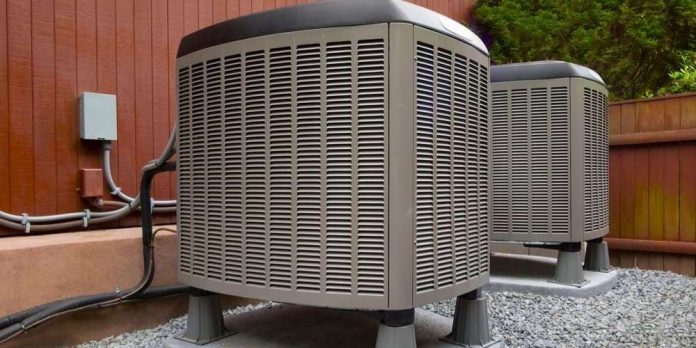The Ultimate Guide to Pumps for Heating Systems: Maximizing Efficiency and Comfort
Ever wondered what’s really keeping your home cozy during those freezing winter months? Yes, your furnace is working overtime, but there’s an unsung hero in your heating equation—the pumps for heating system. Consider it the beating heart of your whole system, silently pumping heat to every corner of your home. Without this key ingredient, even the priciest radiant heaters and radiators would leave cold zones and sky-high energy bills in their wake. Let’s talk about what makes these pumps so important and how they can change and relive your home’s comfort.
What Does a Pump for Heating System Do?
Picture your heating system as a busy network of highways. The pump for heating system is essentially your traffic controller, making sure heated water or coolant travels efficiently from your heat source to all those radiators and underfloor heating throughout your home.
Here’s the really neat part—these pumps keep things moving at just the right pace. Ever been in a home where one room feels like the Arctic while another is tropical? That’s often a circulation problem. A good pump keeps the fluid from sitting still in any one place too long, getting rid of those annoying cold spots that can spoil a nice evening in. It also prevents certain areas from overheating, which merely burns through your hard-earned cash.
The heating circulation pump operates behind the scenes, 24 hours a day, 7 days a week, assisting your boiler or heat pump in performing its function without breaking a sweat. Once everything is flowing well, you won’t just feel more comfortable, you’ll probably also see a welcome surprise when your utility bill comes as well.
Types of Pumps for Heating SystemsCirculator Pumps
Let’s talk about the real workhorses of home heating—circulator pumps. These compact powerhouses are designed specifically for systems where water flows through your pipes and radiators. They’ve earned their stripes as reliable, budget-friendly solutions for most homes.
Ever heard of Grundfos circulator pumps? They’re pretty much the gold standard in this category. They’ve built quite a reputation over the years, offering models for everything from tiny apartments to massive commercial buildings. When heating professionals talk about quality pumps, Grundfos often comes up in conversation.
Geothermal Pumps
Now, if you’re interested in tapping into what Mother Nature offers beneath our feet, geothermal pumps are worth a look. These specialized systems pump fluid through underground loops, extracting the earth’s natural warmth when the cold bites in winter. Yes, they’ll cost you more upfront, but in places where winter really bites, their phenomenal efficiency can seem like a no-brainer.
Air-to-Water Heat Pump Circulators
As more homeowners embrace eco-friendly heating, these specialized pumps have become increasingly popular. They pair with air-source heat pumps to pump warm air they gather from outside into your water-based heating system. These are heating circulation pumps, and they’re becoming a key staple in new, green heating systems to curb your environmental footprint, all while keeping you warm.
Benefits of a Pump for Heating System PerformanceImproved Energy Efficiency
Let’s talk about savings—because who doesn’t love that? A highly compatible pump for heating system can dramatically reduce your energy bills by maintaining not-too-warm, not-too-cold flow rates, cutting out temperature swings. The latest iterations, with variable-speed motors, are truly impressive, adjusting their performance automatically based on what your home needs in the moment.
The heating circulation pump is like a smart driver accelerating at the right time and easing when not needed. When it does run, at just the perfect speed — expending only as much energy as is necessary for your current needs — you could save more than you would with older pumps, which run full-throttle all the time. It’s kind of like the difference between a car with cruise control and a car where you have to keep your foot on the gas pedal.
Enhanced Comfort Levels
Nothing ruins a cozy winter evening faster than temperature inconsistencies, right? One minute you’re snug as a bug, next you’re huddling for another layer. That’s where quality circulator pumps come into play. The install helps heat distributes evenly throughout a home.
The result? Consistent comfort in every room. No more huddling in the one warm spot in the house or avoiding that perpetually chilly guest room. With proper circulation, your entire home maintains that “just right” temperature that makes winter something to enjoy rather than endure.
Prolonged System Lifespan
Let’s face it—heating systems aren’t cheap. A good pump is a guardian angel for your equipment and protects that investment. This prevents the strain on boilers or heat pumps that could shorten the lifespan of expensive components, and thus devices like these can extend your system’s working life by years.
Modern Grundfos circulator pumps and similar quality brands provide smooth, consistent operation with fewer extreme temperature swings and pressure fluctuations that can wreak havoc on the equipment over time. Consider it preventive medicine for your heating system — a small expense that saves you from more expensive repairs later.
Factors That Affect Pump Performance in Heating SystemsFlow Rate and Head Pressure
Here’s something many homeowners don’t realize—your pump for heating system needs to be correctly sized for your specific setup. There is no one-size-fits-all answer. Two of the key specs — flow rate (in gallons per minute) and head pressure — determine whether a pump can efficiently move fluid throughout your entire system.
When these specifications are mismatched to the heating system’s requirements, you’ll potentially be left with either insufficient heating on more remote rooms or observing your energy meter spinning at a faster pace than it should be doing while the pump is fighting against the resistance in the pipes. It’s like watering a large garden with a drinking straw — it is technically feasible, but it’s hardly efficient.
Compatibility with Heat Source
Different heat sources have their own unique personalities and requirements. And whether you have (as you probably do) a traditional boiler, an air-source heat pump or a more exotic geothermal setup, your heating circulation pump needs to be compatible with your heat source for optimal efficiency.
It involves a lot more than just being able to work together, such as temperature ranges, pressure ratings, and control systems. But, when these components are in sync and working together, your heating system functions like a well-practiced orchestra, not a bunch of musicians playing different songs.
Installation Quality
Even the Mercedes-Benz of pumps for heating systems won’t perform properly if installed poorly. In addition, one aspect of it might be ensuring their pump works well, as professional installation guarantees that the pump is placed, wired and piped in a manner that works best.
Typical installation issues such as air locks, incorrect mounting, or wiring errors can greatly reduce efficiency, even to the point of pump failure. Which is why the professional installation often pays for itself over time, even if taking the DIY route seems tempting.
Maintenance Tips for Long-Term Performance
Routine Inspections
Taking a few minutes occasionally to check on your heating system can save hours of headaches later. Keep your eyes and ears open for:
- Strange noises that might indicate air in the system or bearing problems
- Leaks around pump seals or connections
- Decreased heat output that could signal reduced flow rates
- Higher energy bills without corresponding heat production
Catching these warning signs early is like detecting a small leak in your roof before the ceiling collapses—much easier and cheaper to address.
Cleaning and Lubrication
Over time, sediment and mineral deposits can build up in your pump for heating system, affecting its performance.It’s a little like cholesterol gunking up your arteries — and sooner or later it restricts flow and makes everything work harder.
For systems with Grundfos circulator pumps or other quality brands, following the manufacturer’s maintenance schedule typically includes:
- Checking and cleaning the impeller (the spinning part that moves the water)
- Ensuring moving parts stay properly lubricated
- Removing mineral buildup from internal components
- Making sure electrical connections remain tight and secure
Upgrading Older Models
Is your heating circulation pump old enough to have its own driver’s license? If it’s older than 10-15 years, you might wonder what took so long or be surprised just how far technology has advanced. Modern pumps using variable-speed motors can reduce energy consumption by upwards of 30-50% versus older, single-speed systems.
On the other hand, the cost of a new, energy-efficient pump can often be offset by the decrease in utility bills, in addition to providing superior and more dependable heating. It’s the difference between upgrading from a flip phone to a smartphone; once you see the potential of the newer technology, you can’t go back to the old.
Frequently Asked QuestionsWhat is a heat pump used for?
Heat pumps are the Swiss Army knives of climate control — they can do both heating and cooling. Unlike traditional systems that generate heat, these smart devices move heat from a source to another area, in opposition to how nature dictates heat flows from warm to cold areas. In winter, they take heat from outdoor air, ground, or water and transfer it to the interior. In summer, they change direction to cool you off.
What is a pumped heating system?
A pumped heating system is like the difference, between passive and active transport. In contrast to the older gravity-fed networks that relied on the principle of rising heat, a pumped system employs a circulation pump to actively push hot water or a coolant through pipes, radiators, or underfloor heating networks. This circulation of warm air is forced, thus maximising the flow of warmth to your entire home rather than just the areas close to the heat source.
What pump is used for hot water system?
Hot water heating systems utilize circulator pumps. These specialized but small powerhouses are designed to move water efficiently through closed-loop hydronic systems such as your radiators and baseboards. They come in different formats depending on the size of your system, the layout of your pipes and the heating requirements; it’s not so different to using a normal engine to do the job to fit the vehicle you need it to power.
What is the best heating pump?
A reliable, efficient solution is needed – and though specific applications may vary, a few models of Grundfos circulator pumps have earned a significant reputation. Over the years they have become favored by heating professionals for their reliability in quality construction and innovative features. Brands like Wilo and Taco also have great choices for larger or specialized applications, but just like different luxury car brands have their own cults, so do the various models here.
What is the best type of heat pump?
There isn’t a one-size-fits-all answer for the best heat pump type as that will depend on your climate, property, and budget. If you have good insulation and a well-functioning system, air-source heat pumps offer a good value between energy performance and installation cost for most homes. If you live in a part of the world where winter is the real deal, ground-source (geothermal) heat pumps provide better performance at the expense of a higher inital investment. It’s a little like a decision between all-season tires and dedicated winter tires; it depends which are better for your circumstance.
Conclusion
The pump for heating system might not be the showiest component in your home, but its impact on your comfort, efficiency, and system longevity is truly remarkable. By choosing the proper type and size of pump and having it expertly installed, then following up with regular servicing, you’ll maximize the performance of your heating system and do so while controlling those energy bills.
But whatever the stage of your heating puzzle — whether you’re upgrading an older, inefficient pump, building a heating system from scratch, or simply trying to make your existing setup better — it pays to understand the importance of heating circulation pumps so you can make good decisions that add to your comfort and enhance your home’s value.
Find Your Perfect Heating Pump Today
Ready to feel the difference a quality pump can make? Outdoor Boiler is the answer! A premier heating system wholesaler specializing in heating components, premier heating system components, and other great brands like Grundfos circulator pumps, not required, your one stop shop for reliable heating components. They have the best range of products to ensure that you’ll find the right one for your specific heating needs, whether its for a small cottage or a large commercial building.
Outdoorboiler.com will assist you in deciding the right pump for heating system as per your specifications to ensure effective and efficient performance. No need to wait another day with a sub hops heating unit, head over to Outdoorboiler.com. And how a quality circulation pump will make life more comfortable without breaking the bank visit com today!



